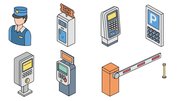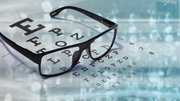Blog
Medication-dispensing kiosks are the next step in user-friendly health care
June 27, 2012 by Kurt Myrick — Technical Engineer, Phoenix Kiosk
Over the last few years health care and technology have combined to provide more convenience for consumers. Rather than wait in long lines at the doctor's office, patients can now opt for "minute clinics" to get treated for common ailments. Clinics offer online medical consulting, patients can access their own medical records through secured sites, and the list of advances doesn't end there. Take for example, kiosks, which are already serving a vital role in the medical field. Patients can test their blood pressure at health kiosks, check-in for a doctor's appointment and use computer-assisted kiosks to learn about health problems.
Medication-dispensing kiosks could be the next step in the hybrid of health care and self-service. Consumers could get their own prescriptions without the hassle of waiting in long lines at the local pharmacy. The kiosks could save a lot of time for busy people, including Diane Kovington, who orders her medication online at outlets such as AccessRx.com.
"I don't have time or energy to wait around at the pharmacy for a prescription to be filled," she said. Kovington, a mother of two and full time businesswoman, was recently sick and spent half of the day at the doctor's office and then spent more time at the pharmacy. "We are a computer-savvy generation. I'm sure many people would use a kiosk to get their prescription quickly."
While prescription-dispensing kiosks are still the infant stages, Don Lineburg, CFO & VP Business Development for Phoenix Kiosk believes they will be in high demand.
"The health care system is evolving and kiosks will evolve with the times," he said. "Future software will allow kiosks to not only dispense medications, but will allow health care providers to track a patient's medication. There is a lot of untapped potential here."
While kiosks may revitalize the pharmacy process, Lineburg says safety protocols must be in place to authenticate prescriptions, ensure machines can't be tampered with, and provide consumers with proper dosing instructions.
"Safety should be a main concern, but there is a way to merge safety and efficiency into one easy-to-use machine," Lineburg said. "I believe both patients and doctors will benefit from this smart technology in the future."
 ChatGPT
ChatGPT Grok
Grok Perplexity
Perplexity Claude
Claude









